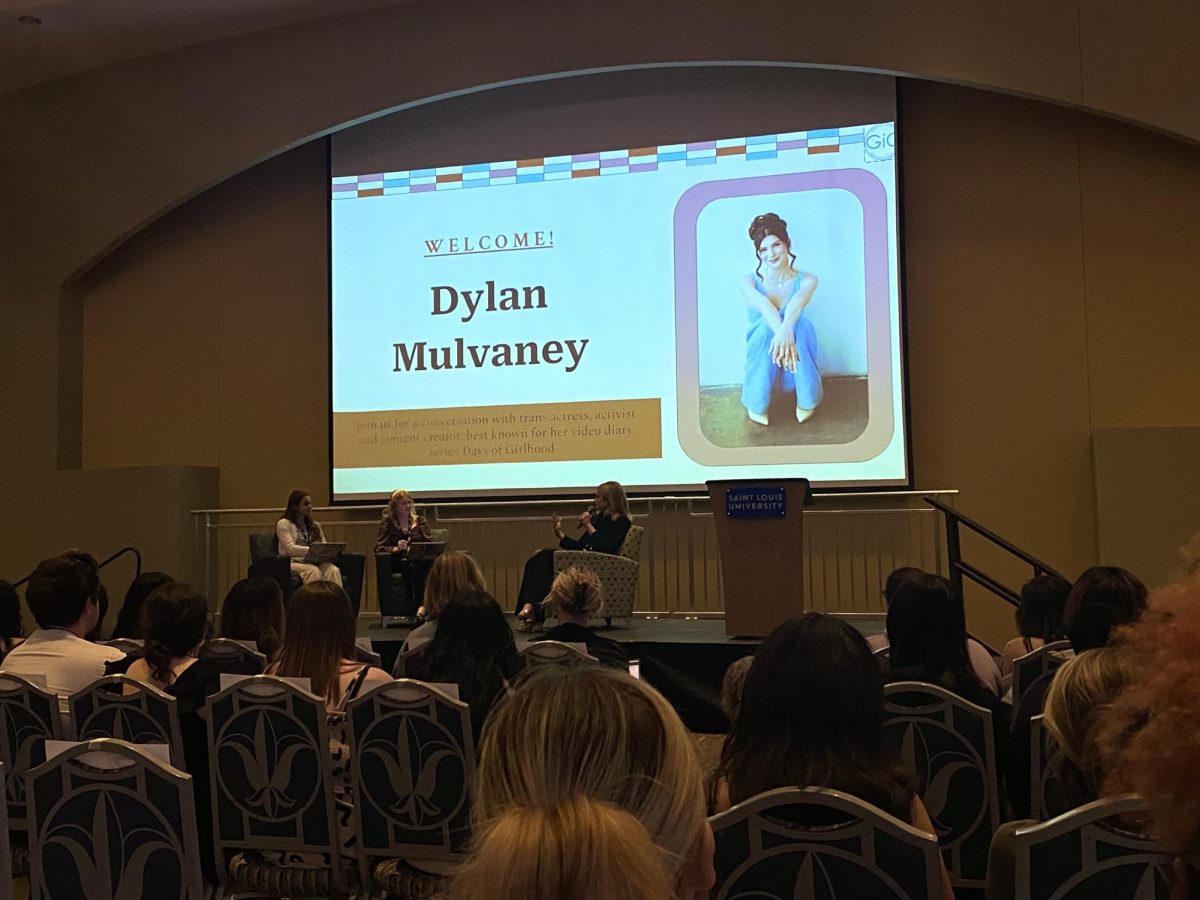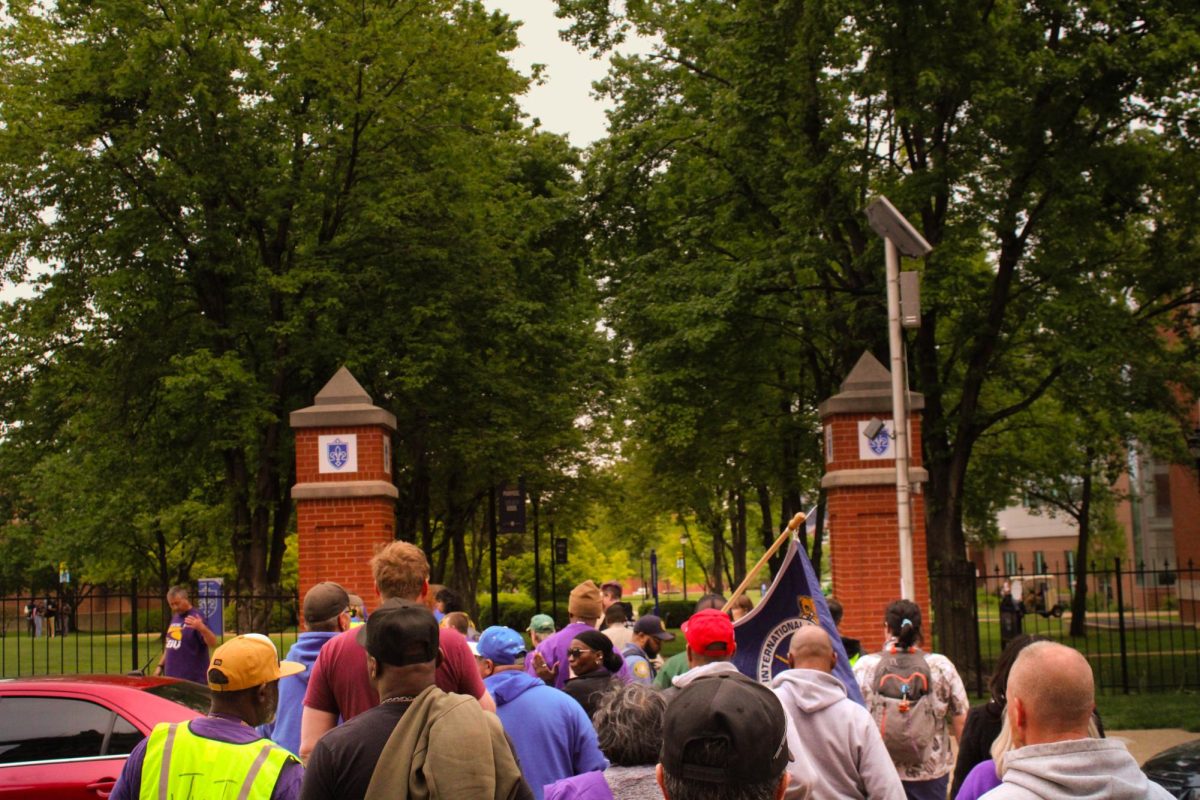Sexual crimes are an unfortunate fact of college life. Regrettably, for some students these assaults are only the beginning of the problem.
“Our culture has a way of making sure that they [victims] don’t report it,” said Paaige Turner, a communication professor who specializes in gender studies. “With regard to women, they say ‘they’re asking for it.’ And with men, they don’t report it because their gender identity has been violated.”
According to the Rape Abuse and Incest National Network, every two minutes someone in the United States is sexually assaulted; and though the number of reports have increased by one third since 1993, it is estimated 60 percent of attacks still go unreported.
According to the Department of Public Safety, last year there were three reported incidents of sexual assault on campus. In 2006, there were three and in 2005 there were six. Saint Louis University’s code of conduct defines sexual assault as “sexual acts of any nature that occur without the undisputable consent of the victim or that occur when the victim may be incapable of consenting.”
Sarah Klucker, of the Office of Student Conduct, said that her department disciplined only two students over the past two years. None of the reported occurrences were acts of random violence by an unknown assailant, but by acquaintances. Many times the perpetrator is a boyfriend who may not actually attend SLU, which may account for the discrepancy between the DPS figures and the Office of Student Conduct.
Klucker highlighted another reason why the numbers of reports may not reflect the actual number of sexual assault cases.
“If they go through the court system the punishments are severe,” Klucker said. “The worst thing that can happen is that person can go to jail and lose their liberties.”
Should a student report an incident though, Klucker said that SLU has a zero tolerance policy toward any perpetrators.
“Any violation of policy is consideration for suspension,” said Klucker. “We take it seriously whether or not you have history. Though just because you report it doesn’t mean that it’ll go to a hearing.
“Our primary goal is getting the victim help; we’re not going to force them to take disciplinary action.”
Martha L. Shockey-Eckles, a sociology professor specializing in women and crime thinks that there are several reasons why victims, especially females, may not be willing to report an attack.
She said a fear of reprisal, a fear of embarrassment and, most importantly, anxiety about how others will see her are key contributors.
While SLU may be fortunate to have a relativly low number of reported sexual assault cases, not all schools are as lucky.
Shockey-Eckles presented what she described as the catalysts for sexual assaults on college campuses.
Shockey-Eckles remarked that while each campus has its own contributing factors, the campuses with a prevalent sexual assault history, especially a violent one, do have a few common traits.
One trait she pointed out was schools that have an emphasis placed on highlighting athletes who participate in aggressive sports, like football.
“Players usually live in dorms just for them in an attempt to build camaraderie and team spirit, for them to help each other with homework,” she said. “Their reasons for housing them together are all positive, but when they are all together, they feed off of each other and aggression breeds like a contagious illness.”
According to Schockey-Eckles, another contributing factor was strictly socially oriented fraternities.
Again, the convergence of macho attitudes along with support for or a lack of control over negative attitudes toward women can become “an explosive situation waiting to happen.”
Alcohol also plays a major role in many sexual assaults regardless of university culture, according to Shockey-Eckles.
“The best way to combat sexual assault,” Shockey-Eckles said, “is education, education, education.”
Even though SLU has a strong athletic and fraternity culture, the chances of such violent attacks on this campus are reduced according to both Shockey-Eckles and Klucker.
They attribute this to the strength of the Catholic, Jesuit mission of the University, which runs through our campus.
Kirstin Leigh, coordinator of fraternity and sorority life, said that she feels the Jesuit mission runs firmly through the Greek community and that our fraternities are not to be feared.
“All Greek life has a social element, that’s why people join, to make those lasting friendships,” said Leigh. “Having social events is a privilege and not a pillar of our community.”
She went on to say that the Greek community does place an emphasis on women’s safety, not just by sororities but the fraternities as well.
Sigma Phi Epsilon fraternity puts on a series of free events every fall dedicated to teaching women self-defense techniques.
Open to all female members of the SLU community, this year’s events started Wednesday night and attracted more than 30 women.
If you or someone you know has been a victim of sexual assault you can report it in three ways: to DPS or to the local police, the Office of Student Conduct or to a pastoral counselor.
Reports to pastoral counselors can remains anonymous and do not require that a report be sent to any other authority.
Student Health Services are also available for counseling.






